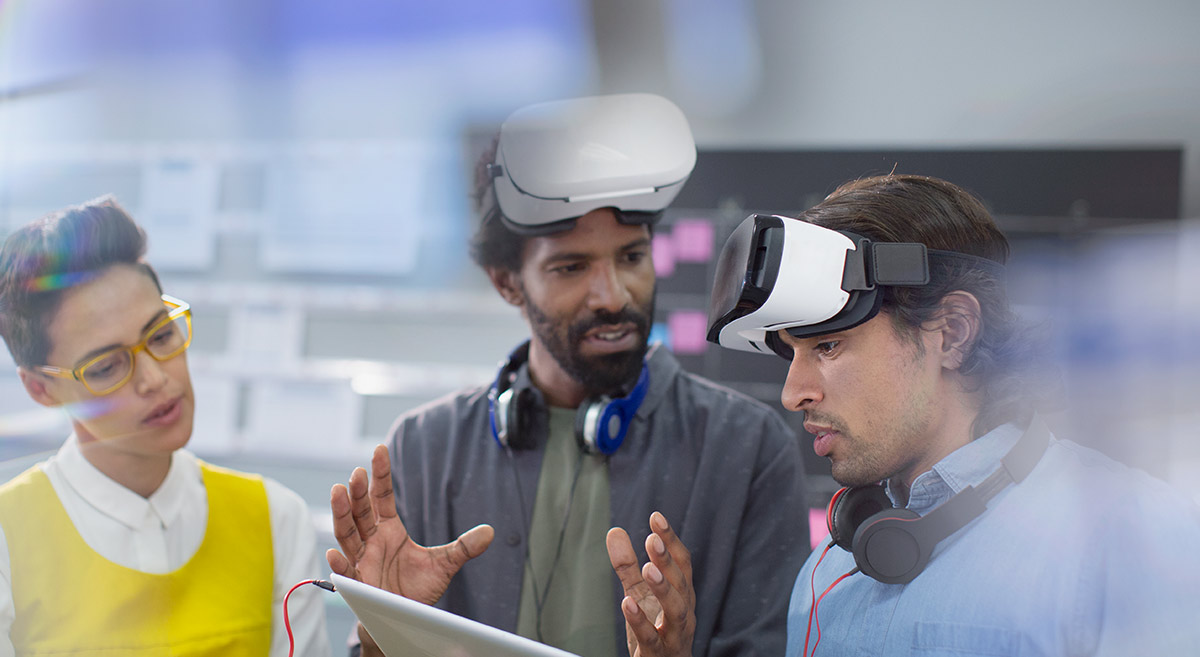5 tech trends we’ll see more of in 2020 & the small caps that are front and centre

(Getty Images)
With a new decade just beginning, we thought it was a good time to take a look at what tech trends will gain momentum and the small caps dabbling in them.
Australian tech executives that Stockhead spoke to believe the tech scene in 202o will be similar to last year, with technologies such as quantum computing and blockchain dominating the news.
1. Quantum computing
Quantum computers are far faster than ordinary computers, offering potential solutions to complex computation, cryptography and simulation problems.
Today they’re very noisy, prone to errors and temperature sensitive.
The only ASX stock involved in this space, Archer Materials (ASX:AXE), is working on a quantum computer that’s mobile and functional at room temperatures.
Narayan Iyer, Asia-Pacific head of markets at Cognizant, admits you won’t be able to own one just yet. But 2020 will see more research and development work into the technology.
2. Artificial intelligence (AI)
This is something else that’s been hyped up for years. The CSIRO recently told us AI is a $315 billion industry and Stephen Schwarzman, head of private equity group Blackstone, said in September AI had ‘Amazon-like growth potential’.
Tech executives, such as Sean Girvin from cloud computing firm Rackspace, admit it is a long way off from wide-scale adoption due to the last mile problem. Even then, it will still need a human factor in decisionmaking.
However, it will eventually become common place. Joe Petro, chief technology officer at Nuance Communications, suggests though that the industry needs stricter regulation.
On the ASX there are more than two dozen small caps in this space but they tend to focus on specific sectors or problems. For example, 2019’s winner, Resonance Health (ASX:RHT), has an AI product that detects iron concentrations in the liver.
3. Blockchain
Most people probably associate blockchain with cryptocurrency. In fact, bitcoin is actually owned by more Australians than hybrid cars.
But the underlying distributed ledger technology has more uses beyond just cryptocurrency. Research firm Gartner thinks it will take off mid-decade.
Blockchain Australia board member Karen Cohen told Stockhead the best use would be the need for public records that can be trusted — being definitive and unchangeable.
One company Stockhead spoke to previously, AgUnity, is using a blockchain solution to prevent farmers in developing countries being cheated.
4. Learning and working online
Andrew Filev, CEO of project management software Wrike, reckons this will be the decade where e-learning platforms take off.
“By 2025, 45 per cent of white-collar employees will have used an e-learning platform to improve their job skills or explore new careers,” he says.
Filev also believes e-working (remote working) will be viewed as a remedy to urban congestion rather than a way to attract employees.
He noted the Japanese government was encouraging residents of Tokyo to do this during the 2020 Olympic Games.
And by 2025, Filev predicts e-working will be encouraged or incentivised in up to 30 per cent of cities with populations above 5 million people.
There are a handful of ed-techs on the ASX including 3P Learning (ASX:3PL), Retech Technology (ASX:RTE), ReadCloud (ASX:RCL) and Schrole (ASX:SCL).
5. People acquiring more tech skills
Australia will need 100,000 more tech workers by 2024. And its not just because people are entering the field but those already in the field are not keeping up to date or specific enough for particular roles.
Australian Computer Society president Yohan Ramasundara’s suggestion is to “elevate our tech heroes to the status of our sporting greats”.
iCollege (ASX:ICT) is one small cap trying to take advantage both of a skills shortage and e-learning.
Managing director Ash Katta told Stockhead even if someone had a tech degree they may need a few months training in something specific, like blockchain, for a particular role.
“Having a Master of IT will give you the ground level understanding but it doesn’t give you the specific skill set for an employer,” he explained.
iCollege’s short courses are aimed at this demographic.
But Mike Featherstone, managing director of US-listed education play Pluralsight, thinks companies will have to play a role.
“It’s the onus of CIOs to ensure their talent is equipped with the right skills to keep up with the increasing pace of emerging and evolving technology,” he said.
“This coming year is an opportunity for organisations to equip themselves with the right tools and teams to evolve with technology.”
Read More:
Full-scale AI is still a long way off and it won’t completely eliminate humans
What the heck is quantum computing and is it worth investing in?
Aussies own more bitcoin than hybrid cars but blockchain won’t be bigger than the internet
EdTech on the ASX: It’s an emerging thing
Why Australia needs to ‘elevate our tech heroes to the status of our sporting greats’
UNLOCK INSIGHTS
Discover the untold stories of emerging ASX stocks.
Daily news and expert analysis, it's free to subscribe.
By proceeding, you confirm you understand that we handle personal information in accordance with our Privacy Policy.







